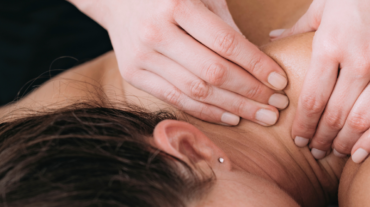
Most people have 'primary' or 'essential' hypertension, which is when there is no identifiable cause, and the high blood pressure tends to develop gradually. It is thought that diet and lifestyle play a major role in this condition. The remainder of people with high blood pressure have what is referred to as 'secondary' hypertension, which is caused by an underlying medical condition that affects the kidneys, heart, arteries, or endocrine system.
High blood pressure is especially dangerous because there are often no signs or symptoms, and can lead to heart attack, kidney failure or stroke without warning. Some people with high blood pressure complain of dull headaches (especially in the back of the head), dizziness, flushed cheeks, vertigo, tinnitus, nosebleeds, or visual disturbances. It is essential that you get your blood pressure checked regularly, as many of these symptoms may not be present, or may be overlooked if they are not severe. Having your blood pressure taken on a regular basis and discussing the results with your doctor could save your life.
Some factors that put you at risk for high blood pressure include:
- age: men between 35 and 55; women after menopause
- chronic conditions such as high cholesterol, diabetes, kidney disease, and sleep apnea
- family history
- race: African Americans are at greater risk
- excessive alcohol intake
- excessive salt consumption
- use of illegal drugs such as cocaine or amphetamines
- medications such as birth control pills, cold remedies and decongestants
- lack of physical activity
- obesity
- cigarette smoking
- stress
Once you have been diagnosed with high blood pressure, your doctor will likely recommend some lifestyle changes, including diet modification and exercise. Medication may also be prescribed, which may include a combination of drugs. Depending on the stage of your blood pressure and what other medical condition you may have present, plus whatever side effects present themselves, it may take some time before the proper drug combination and dosage is discovered. The most common drugs prescribed for high blood pressure include ACE inhibitors, A-II receptor blockers, beta-blockers, calcium channel blockers, and diuretics. Be sure to discuss side effects and drug interactions with your doctor and/or pharmacist.
Natural therapy is excellent for helping reduce your blood pressure. Diet modification is essential, and a session with one of our counselors can help you determine the important changes you can make to better your health. Acupuncture and TCM can help balance your blood pressure, help you lose weight if necessary, and can also assist with most other underlying medical conditions that may be contributing to your elevated blood pressure. Physiotherapy can offer you exercises that are excellent for lowering blood pressure, and massage therapy can help you reduce stress.
Contact us for a FREE consultation on how natural therapy can help you prevent and manage high blood pressure.
These links may also be helpful:







